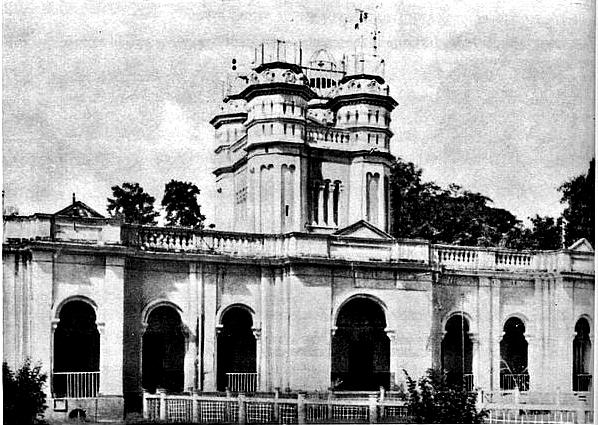
Alipore Observatory, Kolkata (formerly Calcutta). Alipore Observatory became the central hub of meteorology in 1877, and it is from this place that the Indian Meteorological Department (IMD) functioned.
Alipore Observatory, Kolkata (formerly Calcutta). Alipore Observatory became the central hub of meteorology in 1877, and it is from this place that the Indian Meteorological Department (IMD) functioned.
Unknown photographer, n.d.
 This work is licensed under a Creative Commons Public Domain Mark 1.0 License.
This work is licensed under a Creative Commons Public Domain Mark 1.0 License.
Singh, Vipul. “Scientific Modernity, Imperial Governance and Institutionalisation of Indian Meteorology.” Current Research Journal of Social Sciences and Humanities 8, no. 2 (2025).
The Indian Meteorological Department (IMD) has been central to all the modern weather forecasting that is in place today. It replaced the traditional weather forecasting that was used by the communities to understand the weather, monsoon and storms till the eighteenth century. The new forecasting methods were born out of the urgent need of the British colonial government after many droughts, famines and cyclones hit the Bengal province, and they were not able to understand the sky. Surveying and mapping had been very common throughout Europe and the Atlantic world. The British too followed the suit in late nineteenth century as part of a grand project to consolidate their hold in India. Since India was at center of Indian Ocean empire, there was a lot of attention paid to appoint surveyors, cartographers and naturalists in India. They were tasked with the responsibility of retrieving existing historical accounts and rewriting them, demarcating spaces through cartographic survey and fixing the challenges through new scientific research. Meteorology, though less examined in recent writings on environmental history, was an emerging field of study in the nineteenth century and was being financed generously by the European companies, particularly Britain. One of the key questions raised in this paper is the kind of major leaps that were made in meteorological survey. The paper traces the gradual expansion and scientific standardization of weather forecasting, and highlights the real intent of the British government. (Abstract)
© 2025 Vipul Singh

This work is licensed under a Creative Commons Attribution 4.0 International License.

